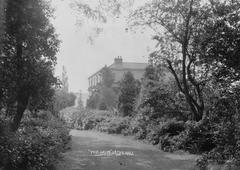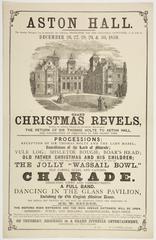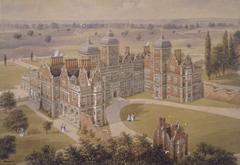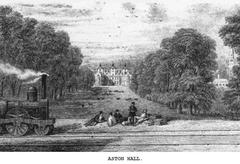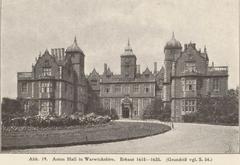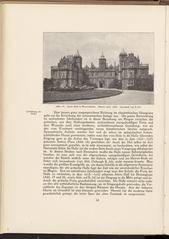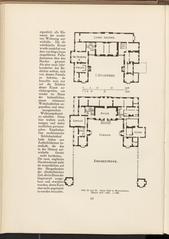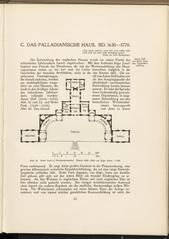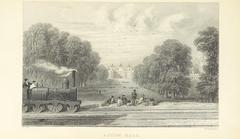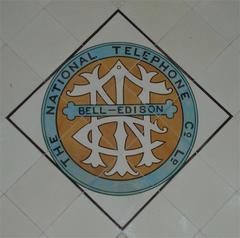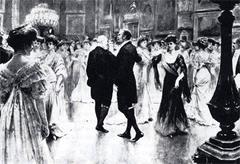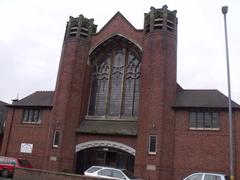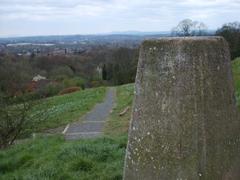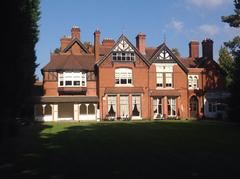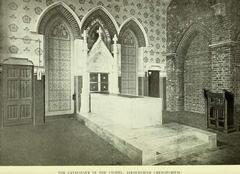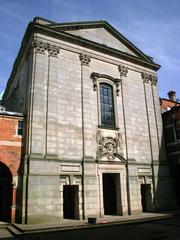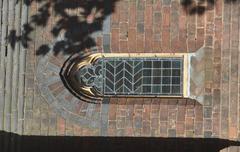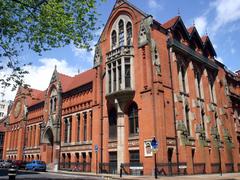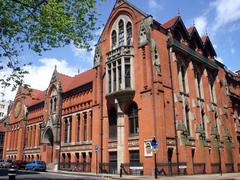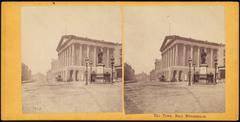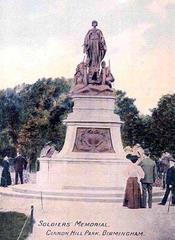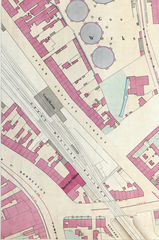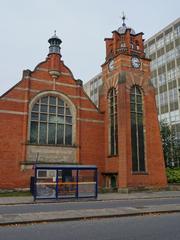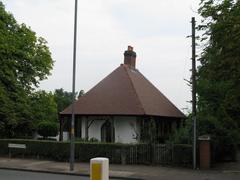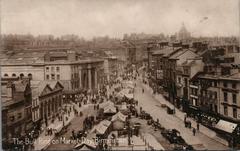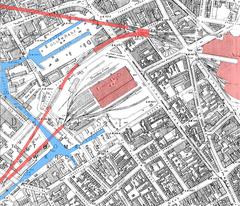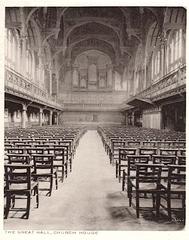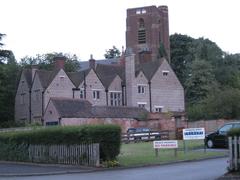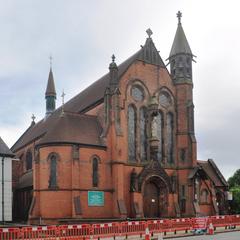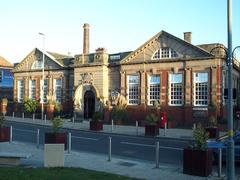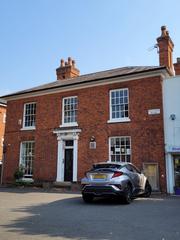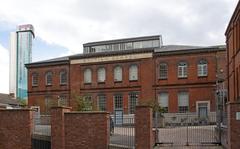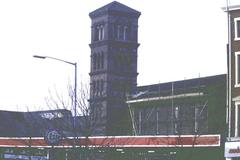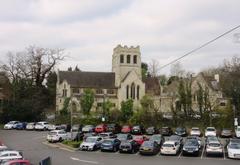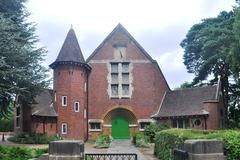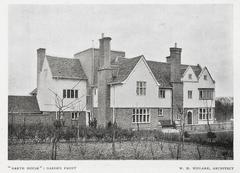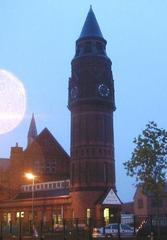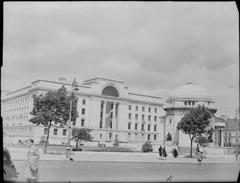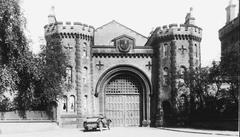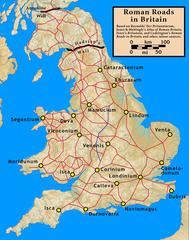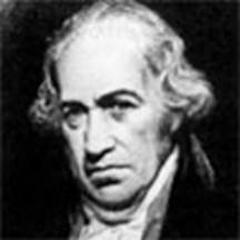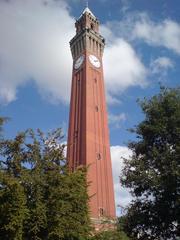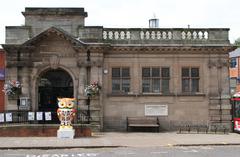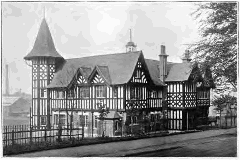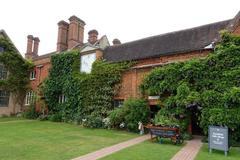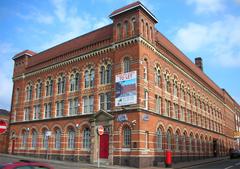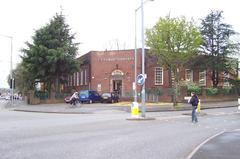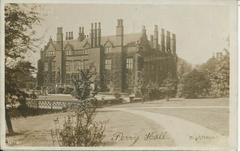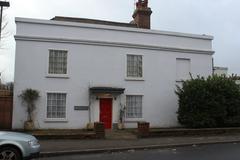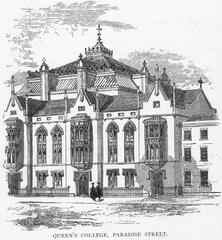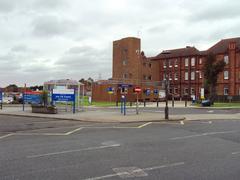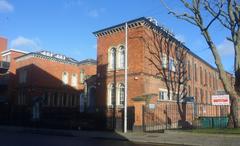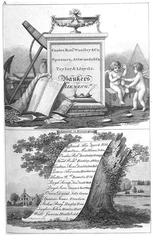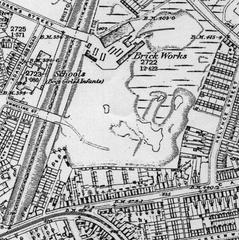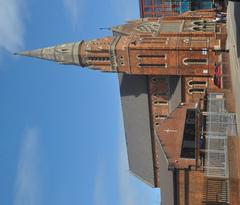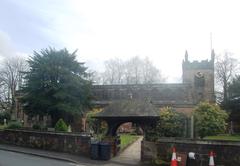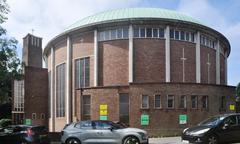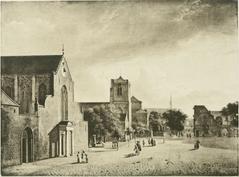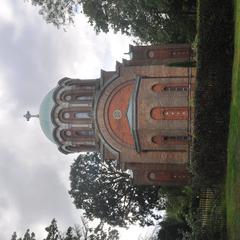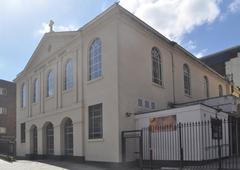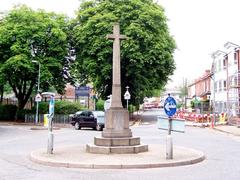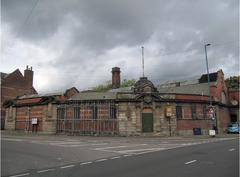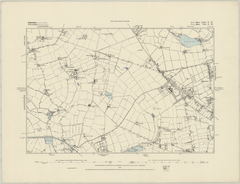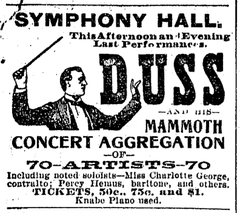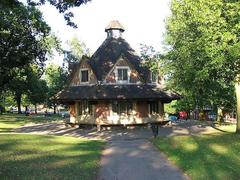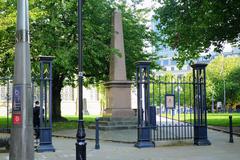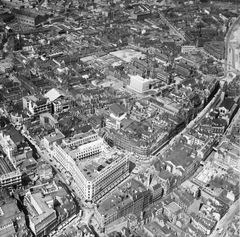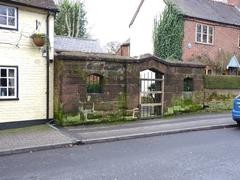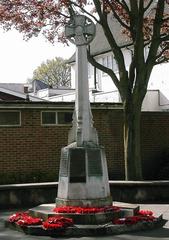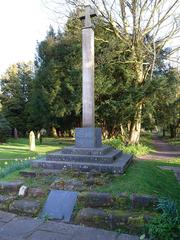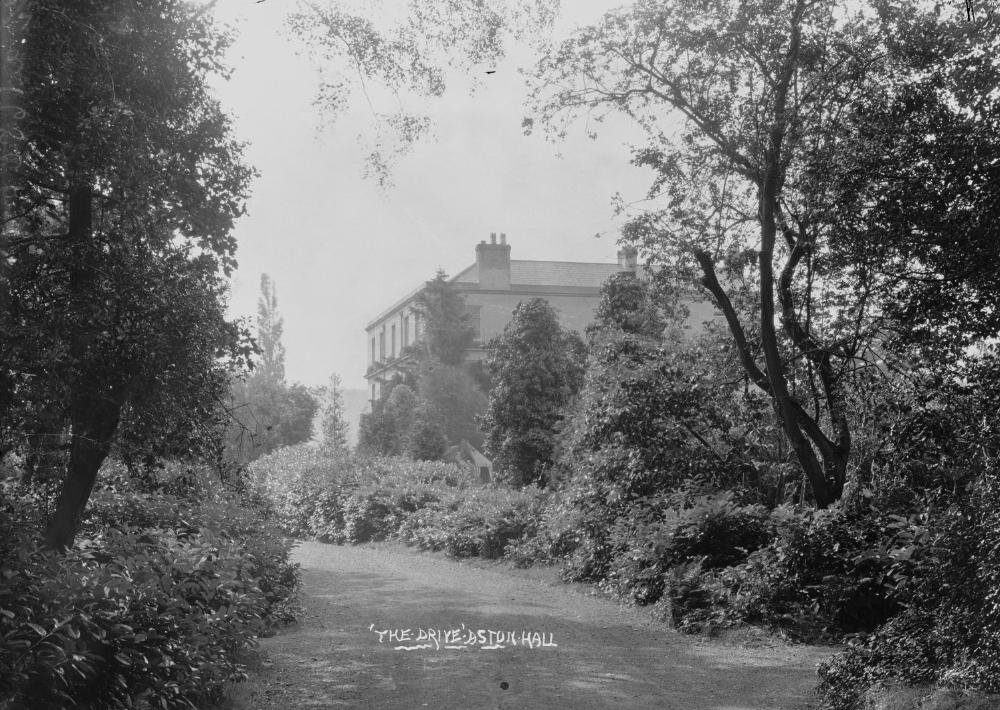
Aston Hall Birmingham: Visiting Hours, Tickets, and Comprehensive Historical Guide
Date: 14/06/2025
Introduction: Discovering Aston Hall’s Historic Legacy
Aston Hall, located in Birmingham, England, is a spectacular Jacobean mansion and one of the city’s most important historical sites. Built between 1618 and 1635 for Sir Thomas Holte, this Grade I listed building is celebrated for its well-preserved architecture, rich historical associations, and vibrant role as a public museum. Visitors to Aston Hall today can step back in time, exploring striking period interiors, grand gardens, and stories of royal visits, civil war drama, and Victorian restoration (Wikipedia; Explore Britain; History Hit; Birmingham Museums).
This guide presents a detailed overview for prospective visitors, including historical background, visitor information, accessibility, ticketing, and nearby attractions—ensuring a rewarding visit to one of Birmingham’s most distinguished heritage landmarks.
Historical Overview
Origins and Construction (1618–1635)
Aston Hall was commissioned by Sir Thomas Holte, a powerful Warwickshire landowner, and designed by architect John Thorpe. Construction began in 1618 and was completed in 1635, resulting in a prime example of Jacobean “prodigy house” architecture. The mansion’s red-brick façade, ornate plasterwork, and wood carvings were designed to impress both royalty and peers, reflecting Holte’s wealth and ambition (Wikipedia; Explore Britain).
The Holte Family and Early Years
The Hall was a family residence for nearly 200 years. Sir Thomas Holte, known for his stern disposition, moved into the house in 1631, and the estate became synonymous with the Holte family’s rise in status. The Hall famously hosted King Charles I in 1642, just before the outbreak of the English Civil War (History Hit).
The English Civil War and the 1643 Siege
Aston Hall’s role in the English Civil War is legendary. In December 1643, Royalist forces loyal to King Charles I garrisoned the Hall, which was then attacked by Parliamentarian troops. Despite being defended by only 40 musketeers, the Hall withstood the assault, sustaining damage that remains visible—such as the cannonball hole in the grand staircase (History Hit; Birmingham Museums).
Decline, Sale, and Public Ownership
By the early 19th century, the Holte family’s fortunes declined, leading to the Hall’s sale and eventual acquisition by Birmingham Corporation in 1864. This marked a turning point in heritage conservation, as Aston Hall became the first major historic country house to enter public municipal ownership in England (Wikipedia; TravelSetu). The Hall opened as a museum and underwent restoration, cementing its place as a Victorian-era tourist attraction.
Modern Era and Preservation
Aston Hall remained a cultural centerpiece through the 19th and 20th centuries. The grounds were partially developed to accommodate Villa Park stadium and the A38(M) Aston Expressway, but the main house and gardens were preserved. Extensive restoration (2006–2009) safeguarded the mansion’s Jacobean features, and since 2012, Birmingham Museums Trust has managed the site (Wikipedia; Birmingham Museums). Today, Aston Hall is famed for its period rooms, elegant gardens, and haunted legends (Spooky Isles).
Aston Hall Visitor Information
Location and Getting There
Address: Aston Hall, Trinity Road, Aston, Birmingham, B6 6JD, United Kingdom
- By Car: Accessible from M6 Junction 6; on-site parking (including Blue Badge spaces) is available but may be limited on event days.
- By Train: Aston Station is a 15-minute walk away.
- By Bus: Multiple routes serve Aston; check local timetables.
- By Bicycle: Cycle paths and bike racks are available.
Visiting Hours
- Tuesday to Sunday: 10:00 AM – 5:00 PM (last admission 4:30 PM)
- Closed: Mondays (except bank holidays)
- Holiday or Event Days: Hours may vary; always confirm on the official website.
Ticket Prices
- Adults: £7.50–£10.00 (varies by season/event)
- Children (under 16): Free or £5.00 (check for latest rates)
- Concessions (students, seniors): £6.00–£7.00
- Family Ticket (2 adults + 2 children): £18.00–£22.00
- Disabled visitors: Concession rates; personal assistants enter free
- Group bookings/guided tours: Available by arrangement
Tip: Pre-book tickets online to guarantee entry, especially during weekends or special events (Birmingham Museums).
Accessibility
- Ground floor: Fully accessible via ramps and level entrances
- Upper floors: Accessible by stairs only; a virtual 360° tour is available for those unable to access
- Toilets: Accessible toilets and baby changing facilities are available
- Assistance dogs: Welcome throughout the site; water bowls provided
- Seating and resting: Available in all rooms and gardens
- Staff: Trained in disability awareness; contact in advance for tailored assistance (Birmingham Museums – Accessibility)
Exploring Aston Hall: Highlights and Unique Features
Architectural Highlights
- Great Hall: Oak screen, minstrels’ gallery, and elaborate plaster ceilings
- Long Gallery: Over 135 feet; displays period art and offers panoramic garden views
- King Charles Room: Named for the monarch’s 1642 stay; features Jacobean bed and tapestries
- Grand Staircase: Site of the famous cannonball damage from the Civil War (History Hit)
Period Rooms and Exhibitions
- Over 30 rooms open to the public, including the Great Parlour, Drawing Room, Library, and servant’s quarters
- Furnished with 17th–19th-century antiques, textiles, and artwork from the Birmingham Museum & Art Gallery (Birmingham Heritage)
Gardens and Outdoor Spaces
- Lady Holte’s Garden: Restored formal 17th-century garden with geometric flowerbeds and hedges
- Stables Courtyard: Home to The Stable Yard café and shop; level access and seating areas
- Grounds: Landscaped lawns, old trees, and walking paths suitable for families and visitors with limited mobility (Explore Britain)
Family-Friendly Activities
- Interactive mini-challenges and trails throughout the mansion
- Special events, school holiday workshops, and seasonal festivals for children (Thrillophilia – Aston Hall Highlights)
Haunted History
Aston Hall is reputedly one of the UK’s most haunted buildings, with tales of ghostly sightings and supernatural events spanning nearly four centuries. Special ghost tours and Halloween events are occasionally held (Spooky Isles).
Visitor Amenities
- Café: The Stable Yard café serves hot/cold food, snacks, and drinks (check for current opening status)
- Shop: Souvenirs, gifts, and local heritage items available
- Wi-Fi: Free for visitors
- Seating: Provided throughout for comfort
Travel Tips and Nearby Attractions
- Wear comfortable footwear due to some uneven surfaces and low lighting in historic areas.
- Combine your visit with nearby sites such as Villa Park (Aston Villa FC), Birmingham Museum & Art Gallery, Birmingham Botanical Gardens, Sarehole Mill, and Thinktank Birmingham Science Museum (WhichMuseum – Best Museums in Birmingham).
- Check for special events and plan ahead, as opening hours and access may be affected by Villa Park matches or private functions (Birmingham Museums).
Frequently Asked Questions (FAQs)
Q: Are guided tours available?
A: Yes, guided tours are offered on select days and for groups by prior arrangement.
Q: Is Aston Hall wheelchair accessible?
A: The ground floor and gardens are fully accessible; upper floors are stair access only.
Q: Can I bring my dog?
A: Assistance dogs are allowed throughout; other pets are not permitted inside.
Q: Is photography allowed?
A: Personal photography is permitted but no flash or tripods. Commercial photography requires prior approval.
Q: Where do I buy tickets?
A: Tickets are available online via the official website or at the ticket office (subject to availability).
Visuals and Interactive Content
- Images: Feature high-quality photos of the Jacobean façade, Great Staircase, Long Gallery, Lady Holte’s Garden, and Civil War cannonball damage, each with descriptive alt text.
- Virtual Tour: Explore the Hall online via the interactive 360° virtual tour available on the official website.
Conclusion: Plan Your Visit to Aston Hall
Aston Hall stands as a living monument to Birmingham’s past—its grand architecture, dramatic history, and accessible public spaces offer a unique and enriching experience. Managed by Birmingham Museums Trust, the Hall continues to inspire visitors of all ages with its blend of heritage, education, and community engagement.
For up-to-date visiting hours, ticketing, and event listings, always refer to the official Aston Hall website. Enhance your journey with the Audiala app, featuring interactive tours and exclusive digital content.
Step into Aston Hall and walk through centuries of English history—your gateway to Birmingham’s heritage awaits.
Sources
- Wikipedia
- History Hit
- Birmingham Museums
- Explore Britain
- TravelSetu
- Birmingham Heritage
- Spooky Isles
- Thrillophilia – Aston Hall Highlights
- WhichMuseum – Best Museums in Birmingham
